From Ghazals to global fame: Pankaj Udhas’ soulful serenade
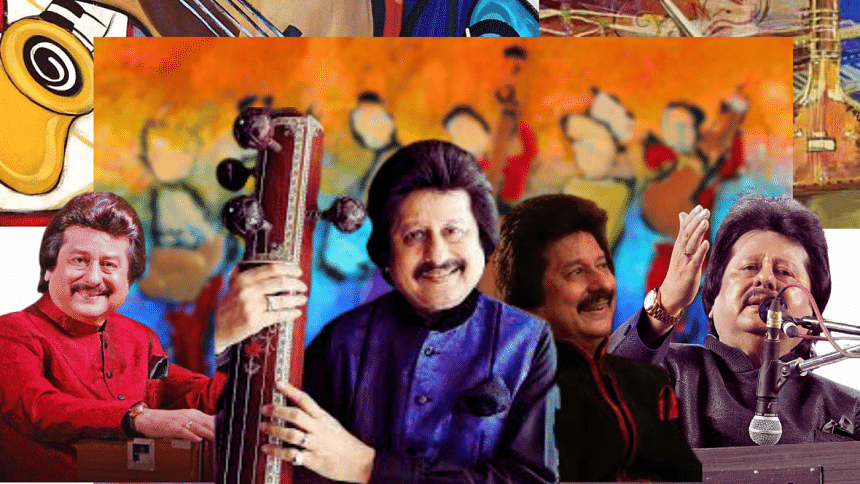
When one thinks of Ghazal, it is natural to picture a voice carrying the weight of ages, each word draped in solemnity and depth, commanding reverence with its serious, heavy tones. Then came a song, a letter, that bridged the gap between the harmonic beauty of Urdu poetry of Pakistan and the popular stage of Bollywood in India when a father wrote about his longing to see his son back on his soil.
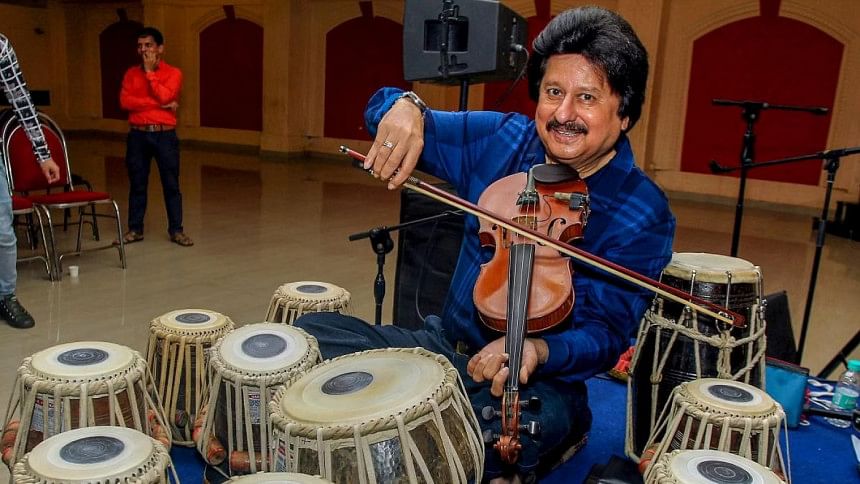
Sung with a soothing voice clear as day, Pankaj Udhas was smiling on stage, with his friendly demeanor, drawing the audience to tears. When one thinks of Pankaj Udhas, it is natural to instantly think of "Chitthi aayi hain"— the cult classic Bollywood song that incorporated elements of Ghazal poetry within a cinematic experience.
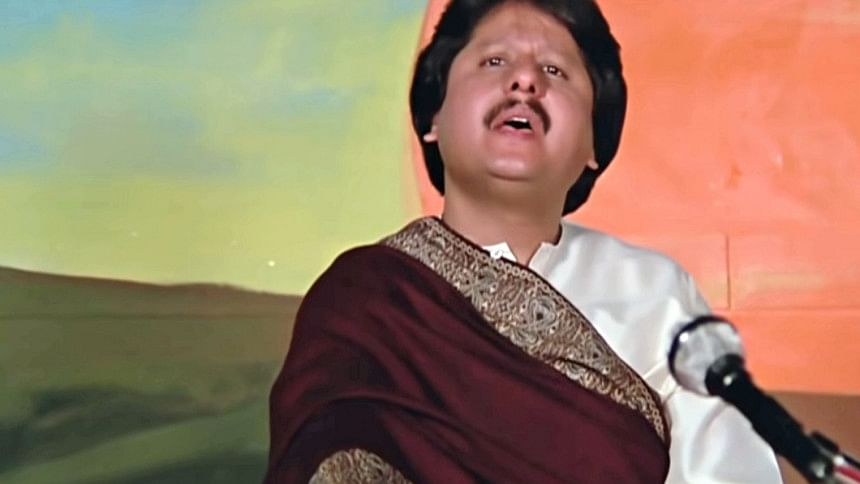
The man behind the song, Pankaj Udhas, brought Ghazal to the masses, popularising it and making it accessible to the multitude not only in his country India but also across the globe with his calm and controlled voice that won everybody's hearts.
From his first album "Aahat" (1980) to receiving the Padmashri in 2006 and everything in between and beyond, Pankaj's musical journey spans several genres, accolades, and across boundaries. Singer and composer Pankaj Udhas left an indelible mark with his songs about love, loss, and longing.
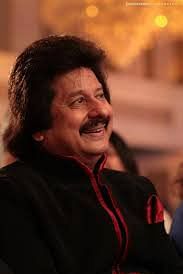
74 years ago, on this day, Pankaj Udhas was born in the village of Navagadh in Jetpur, Gujarat. Pankaj Udhas did not hail from a family of singers but from one that dearly loved music. Udhas first felt his calling for singing in the passion he saw in his father.
Udhas's father curiously ventured into learning the esraj aka the dilruba. His mother too sang in family functions with her melodious voice. He said in an interview with The Sunday Guardian, "There was no music in the family. In fact, nobody even pursued music. So I guess in my case, it was destiny. It had to happen."
Alongside, his two elder brothers, Manhar and Nirmal, then started to sing in various social functions in Rajkot where they lived. Pankaj's journey towards music was inevitable, with little to impede its graceful pull.
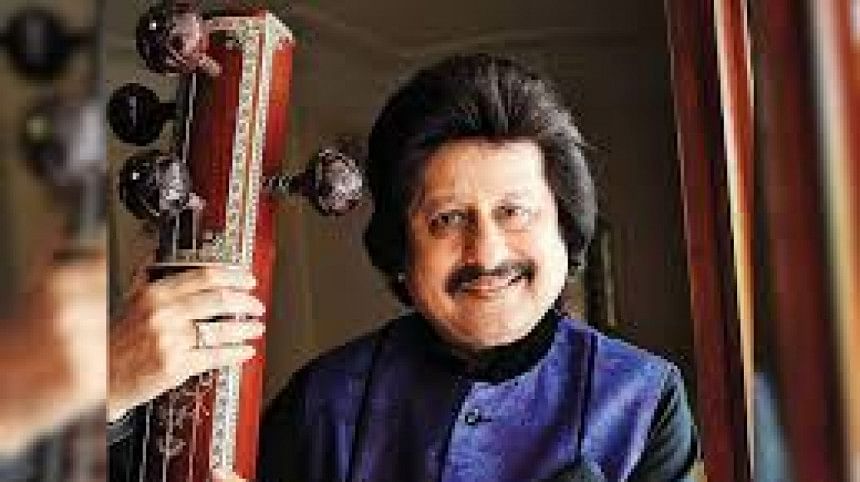
Yet, this was a man who never believed he would make his career off singing. When the school principal got to know Pankaj had a knack for singing, he was made the head of the school prayer team. After Aarti-Bhajan one night, in a cultural program, Pankaj was requested to sing a song.
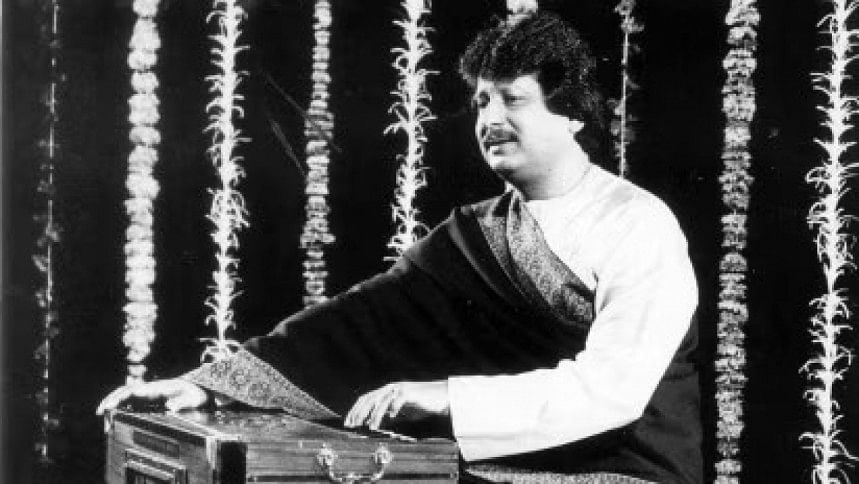
The sitting audience was driven to tears when he sang Lata Mangeshkar's "Ae mere watan ke logon" in front of all. Pankaj received a standing ovation from a man there who rewarded him Rs 51, which was his first achievement as a singer.
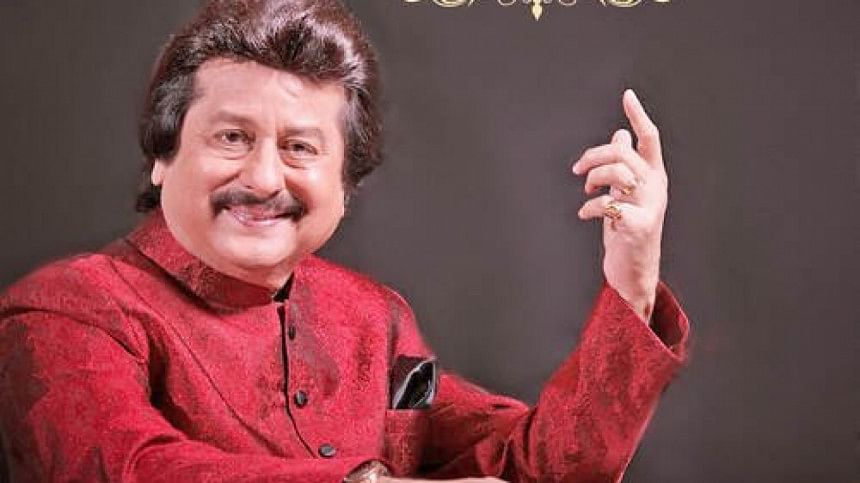
Pankaj mastered the tabla at the age of 12 at the Sangeet Natya Akademi. When his elder brother Manhar Udhas made his way to Mumbai to record with famous composers in Mumbai, his family moved to the city. There, Udhas began to learn from Master Navrang Nagpurkar from the Bhendi Bazaar gharana. And while studying science at St Xavier's, Udhas found his love for a new genre in Begum Akhtar's Ghazals.
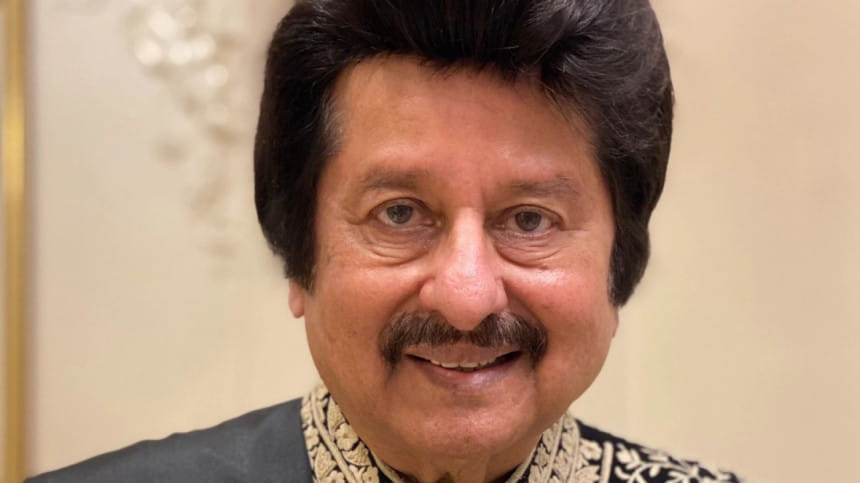
He grew a keen penchant for Urdu and augmented his pronunciation from a 'Maulvi saab'. By the time, Manhar Udhas was singing in Hindi films. Pankaj, Manhar, and Nirmal, the Udhas brothers went on to form the band, Fabulous Three Brothers, which performed with an orchestra across Mumbai. When veteran composer Usha Khanna attended one of their shows, she recommended Udhas's name to filmmaker BR Ishara who was looking for a new voice for his next film. Udhas would go on to sing "Tum Kabhi samne aa jao" a ghazalnama for the 1972 film "Kaamna".

Pankaj did many stage shows and wanted to make a place in Bollywood like his brothers but after a struggle for 4 years where he got no major work, he was rendered unhappy. His songs were well received but it was hard to make a mark in a time when legends like Mohammad Rafi, Lata Mangeshkar, Kishore Kumar, and Manna Dey ruled the music scene of the Hindi film industry. Udhas would leave everything to shift to Canada then, a shift that spread his comforting voice internationally. His love for ghazal and an enchanted audience could not keep him away from performing for a large audience there.
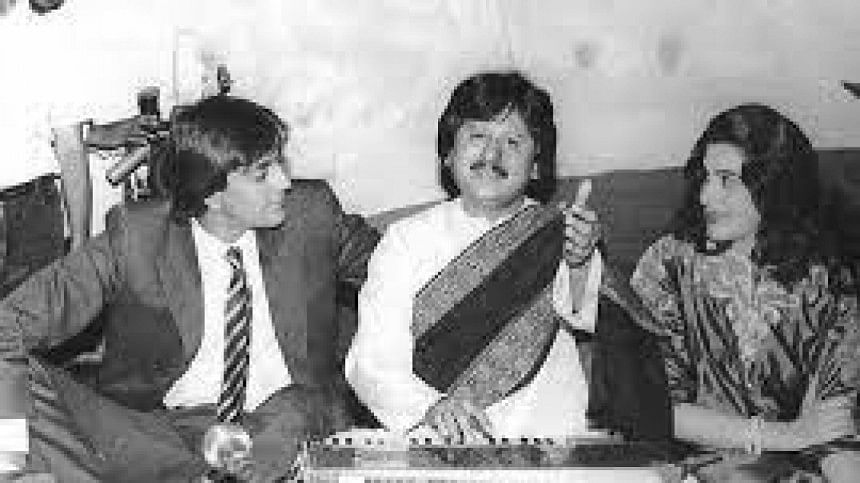
At the peak of popularity of the ghazal genre in the 80s, Udhas released two albums, "Aahat" (1980) and "Nayaab" (1985), which garnered the attention of the masses. Aahat comprised songs that explored social commentary alongside romanticism. Nayaab was an exploration into love and life's mysteries. In achingly simple lyrics with relatability, Udhas's notes stayed with his fans.
Udhas was yet to find his biggest break shortly after when "Chitthi aayi hain" hit the screens through Mahesh Bhatt's crime thriller "Naam" (1986). Then came "Aaj Phir Tump" in "Dayavan" (1988), "Jeeye to jeeye kaise" in "Saajan" (1991), "Chhupana Bhi Nahi Aata" in "Baazigar" (1993), "Mohra" (1994), "Chandi jaisa rang hai tera" in "Ek Hi Maqsad" (2001), while he would keep performing in India and worldwide.

In 2006, Pankaj Udhas received the coveted Padmashri, the fourth-highest civilian award in India. Udhas's Ahista would go on to become a classic probing into the 90s indie-pop popularity and reach everyone's hearts. In 1990, Pankaj Udhas collaborated with Lata Mangeshkar for the duet "Mahiya Teri Kasam" in the film "Ghayal", which became a huge hit. By then, Pankaj Udhas was a name to endear and love dearly.
Pankaj Udhas possessed a remarkably genuine and candid demeanour, never exuding an air of unapproachable stardom. He opened up about getting back to the stage and feeling nervous after a hiatus with the Hindustan Times where he said, "When I got back on stage after two years with a concert in Rampur (Uttar Pradesh), I was really nervous. But when I went up on stage and saw 6,000 people cheering for me, I had tears in my eyes. It was a very emotional moment, as I was deprived of the stage for so long."

Udhas's versatile voice has graced several languages including Hindi, Urdu, Gujarati, and Punjabi. Lesser known are Pankaj Udhas's songs in Bangla. Yes, this is the cue for you to go and listen to, in his soulful voice, songs like "Jodi arektu shomoy petam", "She keno amay", "Ami tomay niye", "Bhalobasha", "Tumi khacha hole aami hobo pakhi", "Chokh tor chorabali", and more. He also founded the ghazal festival, Khazana, where he would perform till 2023 and he only stopped due to his ailments. After battling with pancreatic cancer for several months, Pankaj Udhas breathed his last earlier this year at Breach Candy Hospital on 26th February.
Interestingly enough, the lyrics of Udhas's 1989 song "Jodi arektu shomoy petam", express a desire to stay a while longer for he would have filled the heart with love and happiness with his songs. Reflecting on the legend's heartfelt candor and soulful serenades brings a bittersweet joy, reminding us of the timeless melodies he left behind.

 For all latest news, follow The Daily Star's Google News channel.
For all latest news, follow The Daily Star's Google News channel. 






Comments